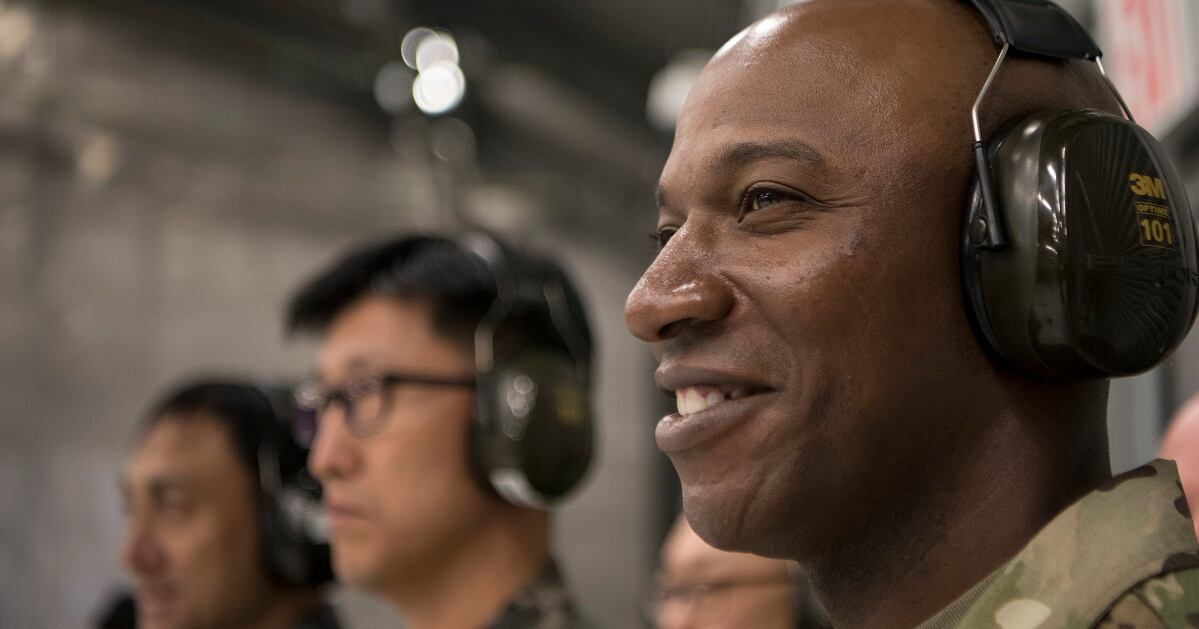The Air Force is now asking airmen about the sickle cell trait as part of their fitness screening questionnaires in response to some airmen’s physical fitness training-related deaths earlier this year.
Air Force spokeswoman Capt. Carrie Volpe said in an email Thursday that all airmen are also now required to complete the recently changed questionnaire at least seven days before taking their fitness assessment. The changes were first reported by Military.com.
“These changes were made to ensure airmen who have medical conditions receive proper medical review/clearance prior to conducting their fitness assessment,” Volpe said.
Three airmen have died after PT tests this year. Senior Airman Amalia Joseph died May 26, just days after experiencing a medical emergency following her run on a track at Shaw Air Force Base in South Carolina. Senior Airman Aaron Hall died June 1, a few days after a similar emergency at Shaw’s other running track.
Capt. Tranay Lashawn Tanner died Aug. 17 at Eglin Air Force Base in Florida after exhibiting health issues following completion of her PT test the day before.
Chief Master Sergeant of the Air Force Kaleth Wright told Military.com that some of those deaths were linked to the sickle cell trait.
RELATED

The questionnaire asks airmen a variety of questions to ensure their safety and health, including whether they are suffering unexplained chest discomfort, shortness of breath, or dizziness or fainting associated with exertion.
The version of the questionnaire now online, dated July 19, asks airmen if they can verify they know their sickle cell trait screening test result. If airmen have the sickle cell trait, the questionnaire then asks if they had completed at least two counseling sessions with a health care provider and watched an educational video within the past year. If the answer is no, airmen are supposed to notify their unit fitness program manager and primary care provider.
The Air Force is also reviewing two more policy updates intended to increase safety and reduce anxiety associated with testing, Volpe said. Those additional changes will be rolled out after coordination and review “to ensure we get them right,” Volpe said.
Wright told Air Force Times in a September interview that the service is thinking about separating the abdominal circumference portion of the PT test, also known as the tape test, from the running, situp and pushup portions, instead of doing everything on the same day. The Air Force may have airmen take the tape test at least seven days, but no more than 30 days, apart from the other components.
Wright said that some airmen now take “drastic measures” to reduce their waist size, such as starving themselves or taking substances such as diuretics to drop inches quickly. These steps, which Wright called “unhealthy," can lead to airmen getting sick, passing out or otherwise injuring themselves during the components of the fitness test requiring physical exertion.
The Air Force is also moving toward allowing airmen to take a practice, “no-fail” PT test early to reduce their stress. Under this system, an airman could take the PT test before their deadline. If they pass, it counts. But if they fail, it would be viewed as a “diagnostic” test telling them where they need to improve, and they would not be penalized.
Stephen Losey is the air warfare reporter for Defense News. He previously covered leadership and personnel issues at Air Force Times, and the Pentagon, special operations and air warfare at Military.com. He has traveled to the Middle East to cover U.S. Air Force operations.




